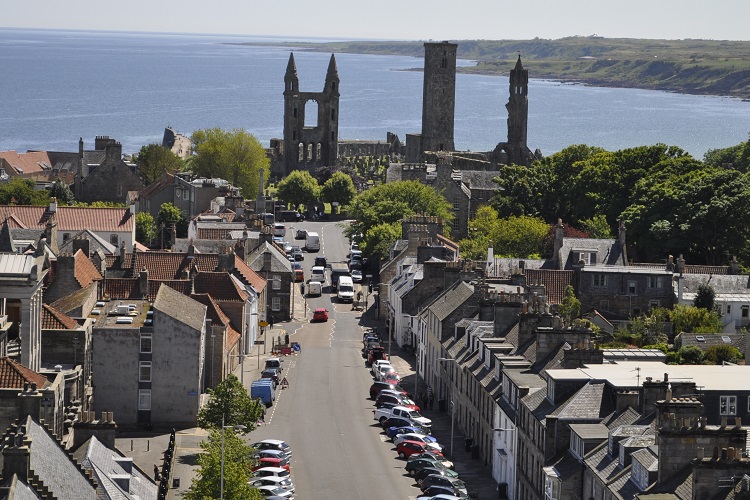Leading St Andrews figures recognised by the Royal Society of Edinburgh

A world-renowned virologist, a bioorganic chemist and a statistical ecologist from the University of St Andrews join The Right Honourable Lord Menzies Campbell of Pittenweem, Chancellor of the University, as newly elected Fellows of the Royal Society of Edinburgh (RSE).
The RSE, Scotland’s National Academy, today (Tuesday 3 March) announces 64 new Fellows from across the world of science, the arts, education, business and public life, including six newly elected Fellows from the University of St Andrews.
The Right Honourable Lord Menzies Campbell of Pittenweem, Chancellor of the University of St Andrews, joins leading St Andrews’ scientists, including Professor of Plant Virology from the School of Biology and Director of Science at the James Hutton Institute, Professor Lesley Torrance; Dean of Medicine and Chief Scientist (Health) for the Scottish Government, Professor David Crossman; and Professor Simon Dobson, Head of the School of Computer Science.
Other University of St Andrews’ academics joining the RSE as Fellows in 2020 include Professor David Borchers, a statistician specialising in the development and use of statistical methods to solve problems in ecology, and Professor Rebecca Goss, Professor of Organic Chemistry, whose research focusses on the biosynthesis of natural products at the chemical and genetic level.
The 2020 Fellows comprise leading thinkers and experts from Scotland and around the world whose work has a significant impact on our nation. Those who are nominated, and then invited to join, have undergone rigorous assessment of their achievements, professional standing and societal contribution. Fellows, who give of their time freely, play a fundamental role in enabling the RSE to deliver its mission ‘Knowledge Made Useful’, contributing to the cultural, economic and social well-being of Scotland and the wider world.
Alongside the 54 Fellows and eight corresponding Fellows, honorary fellowships have also been awarded to actor, producer, singer, author and activist Alan Cumming OBE and historian Niall Ferguson.
Professor Dame Anne Glover, President of the RSE, said: “The diverse expertise and experience of our Fellows means that, as an organisation, we are well-placed to respond to the issues of the day with clear informed thinking free from commercial or political influence. Our new Fellows, who we look forward to welcoming, not only hold vast knowledge but also deep experience, keen judgement, boundless enthusiasm and a passion for promoting societal development and change. By using their talents as a collective, we can often unlock or inspire new potential and unearth fresh solutions to some of the most complex issues Scotland’s society faces today.”
Congratulating the new appointments, Professor Sally Mapstone FRSE, Principal and Vice-Chancellor of the University of St Andrews, said: “Each newly elected Fellow has been nominated for their exceptional and extensive achievements in their field; it is a great honour for each of them as individuals and is reflective of the excellent and world-leading calibre of research that St Andrews is known for.
“I am also personally delighted that the RSE has recognised our long-serving Chancellor, Lord Campbell, in electing him as a Fellow this year.”
The RSE was established in 1783 for “the advancement of learning and useful knowledge”.
Fellows help the RSE to continue to provide independent and expert advice to policymakers, support aspiring entrepreneurs, develop research capacity and leadership, inspire and facilitate learning, and engage with the general public through inspiring events.
New Fellows are following in the footsteps of Benjamin Franklin, Sir Walter Scott and Professor Charlotte Auerbach, and more recently Professor Peter Higgs, Dame Jocelyn Bell Burnell, Sir John Curtice, James MacMillan, Caroline Gardner and Ben Thompson.
Category Awards